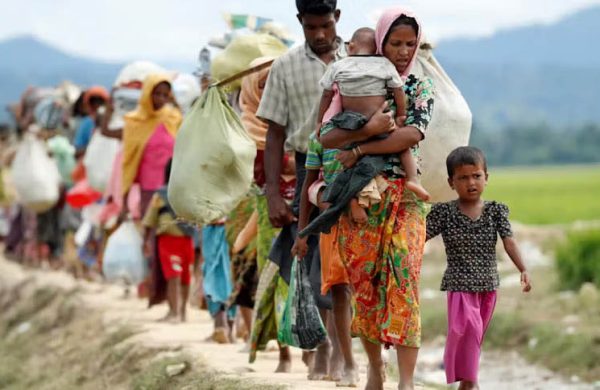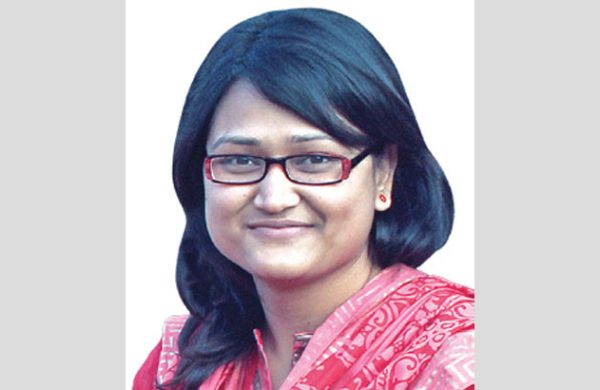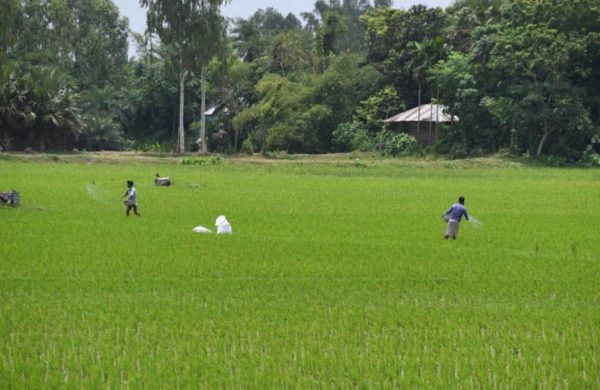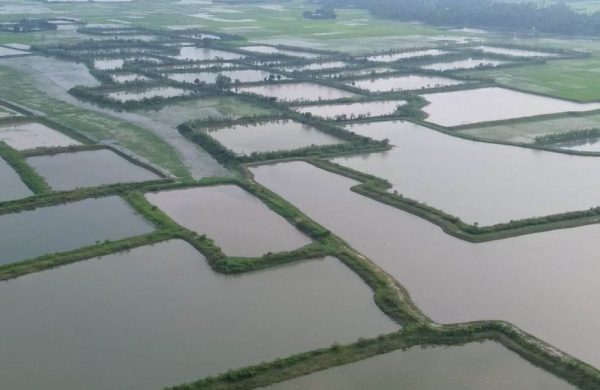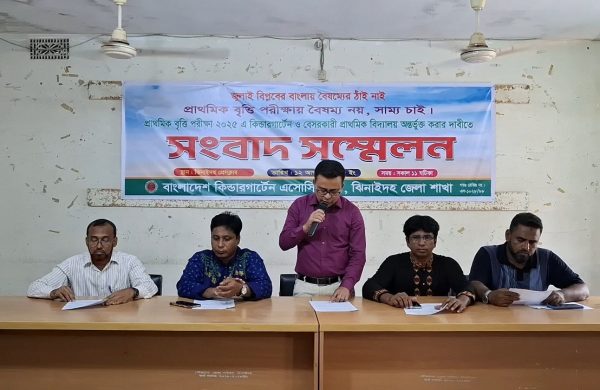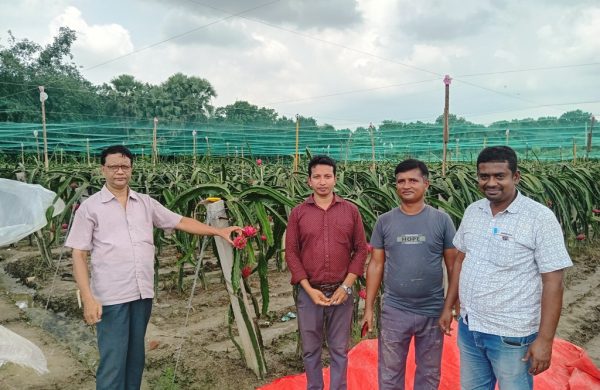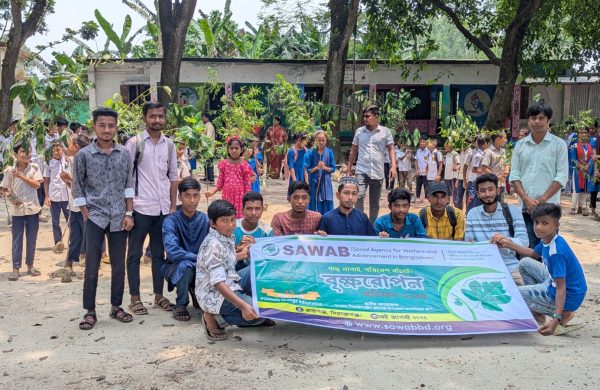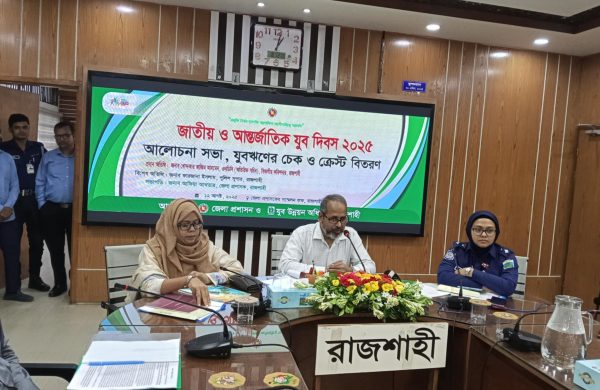Continued action needed to ensure global food security
- Update Time : Monday, March 17, 2025

—Dr M Abdul Momin—
Food security has become one of the most pressing challenges across the globe, especially in the low-income countries. The latest World Bank Food Security Update paints a grim picture of rising food prices, funding shortages, and worsening hunger across the globe. Climate change, conflicts among the countries, and economic instability continue to disrupt food production and accessibility, putting millions at risk which have significantly disrupted food production and accessibility.
The report stresses the need for long-term investments in sustainable agriculture, better financing for food assistance, and stronger policy responses to stabilise food markets and ensure global food security. For Bangladesh, these global disruptions pose serious challenges, underscoring the need for immediate policy actions. Government strategies must focus on diversifying food sources, increasing domestic production, and strengthening emergency food reserves.
According to the report, food prices remain highly volatile across the globe. While rice prices have declined a bit, maize has hit a 15-month high price, driven by supply shortages. Wheat prices remain steady, but inflation in many low-income countries is making staple foods unaffordable.
One of the most shocking revelations of the report is the huge funding gap in food security efforts. Only 3% of global development funding (USD 6.3 billion) is directed towards the food sector, while 33% (USD 10.3 billion) goes to humanitarian assistance. This imbalance highlights the world’s failure to invest in long-term solutions that could prevent future crises.
Meanwhile, food insecurity is reaching extreme levels. In 2023, around 281 million people faced acute hunger, yet humanitarian aid to food sectors declined by 30% compared to 2022. South Asia and Africa remain the worst-affected regions. In Afghanistan, millions suffer from malnutrition, while in West and East Africa, conflicts and price hikes are driving hunger to catastrophic levels. Statistics, however, can become numbing.
What’s critical to grasp is the human cost: stunted development in children, increased vulnerability to disease, and the erosion of social and economic stability. These are not abstract concerns; they are real-world consequences that undermine progress and perpetuate cycles of poverty. Economic stagnation exacerbates this problem. The projected slow global growth further constrains poverty reduction efforts and makes it harder for nations to invest in their own food systems.
What’s the way out then? First, increase investment in sustainable agriculture practices. We need to support climate-resilient crops, improve irrigation systems, and empower farmers with the knowledge and resources to thrive in a changing environment. Second, promote integrated humanitarian financing. This means aligning emergency aid with long-term development strategies, bridging the gap between immediate needs and sustainable solutions. Third, focus on food chain resilience.
This could be accomplished by strengthening food supply chains, stabilising inflation, and promoting fair trade practices to benefit both consumers and producers. Fourth, commit to data-driven decision-making. We need robust, accessible, and real-time data to identify vulnerabilities, monitor progress, and ensure that resources are targeted where they are needed most. The World Bank’s Food and Nutrition Security Dashboard is a step in the right direction, but it requires ongoing investment and expansion. Lastly, promote global cooperation. This is not a problem any nation can solve alone. We need collaborative solutions to promote fair trade, reduce barriers, and build a more equitable global food system.
However, the global food crisis is not a distant problem — it is already impacting Bangladesh. Rising prices, supply chain disruptions, and declining global aid require urgent policy interventions. Although Bangladesh has made significant progress in food production, it remains vulnerable to global price fluctuations and supply chain disruptions. Because, the country still imports a substantial portion of rice, wheat, maize and edible oils to meet local demand. Any shocks in international markets can lead to price hikes domestically.
The rising cost of maize and wheat is particularly concerning, as Bangladesh relies on maize and wheat for both food consumption and poultry feed. If prices continue to climb, it could lead to increased costs in the livestock sector, affecting egg, chicken, and dairy prices — ultimately burdening low- and middle-income families. Moreover, the funding crisis in global food security is a wake-up call for Bangladesh. If international aid continues to shrink, millions in the country who rely on safety net programmes, relief assistance, and subsidised food schemes could face greater hardships.
To safeguard against these risks, Bangladesh must adopt a multi-pronged approach. First, diversify food imports. The government should explore alternative suppliers to reduce dependency on specific countries. Strengthening trade agreements with multiple partners can help stabilise supply chains. Second, the country needs to boost domestic production. Investing in climate-resilient agriculture is crucial. Research and innovation in drought-resistant and flood-tolerant crops will help secure food supply in the face of erratic weather patterns.
Third, strengthen food reserves. The country must maintain strategic grain reserves to cushion against price shocks and supply disruptions. Expanding storage facilities and improving distribution mechanisms will be the key. Fourth, enhance social safety nets. As food prices remain unstable, stronger safety net programmes will be essential. Finally, promote sustainable farming. Smallholder farmers should receive greater support through subsidies, access to technology, and training on modern farming techniques. This will help boost productivity and reduce reliance on imports.
The government, private sector, and development partners must work together to build a more resilient food system. If we act now, Bangladesh can ride out these challenges and ensure food security for all.
——————————————-
The writer is a senior communication officer at Bangladesh Rice Research Institute (BRRI)



